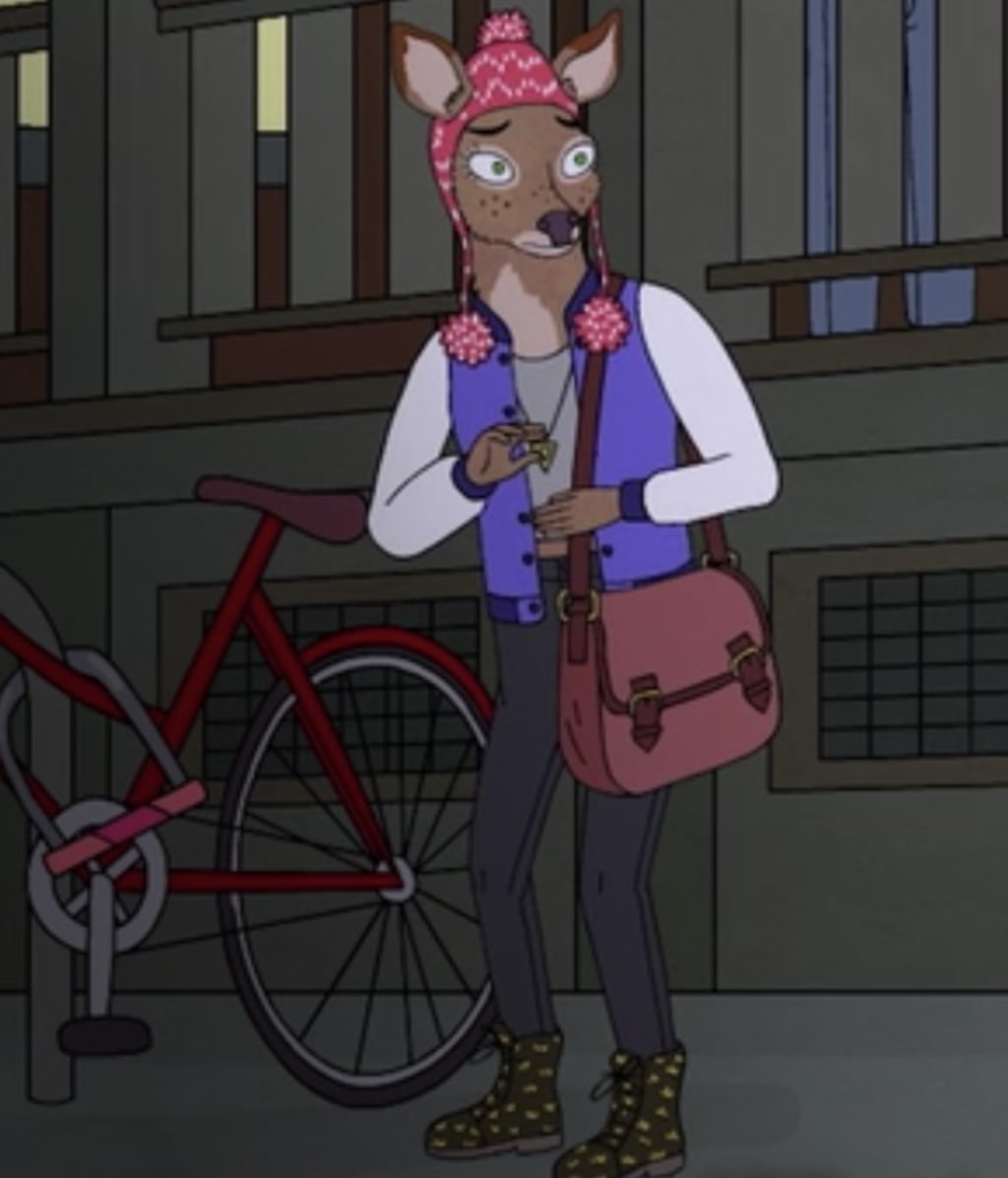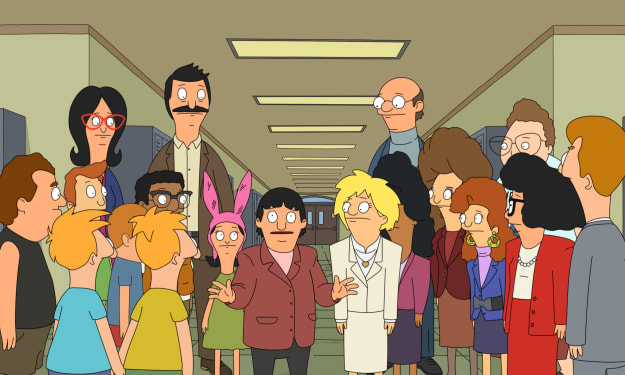In the Era of #MeToo, Does Bojack Deserve Our Love?
Are we excusing sexual predatory behavior, again?

I finished Season 5 of Bojack Horseman a few weeks ago… and I haven’t been able to watch anything new since then.
Countless articles praise the show’s humorous, yet brutally honest look at mental illness and substance abuse. The fifth season was certainly no different. After the fourth season, some critics predicted that the show was going to a softer, lighter place. They could not have been more wrong. (If you haven’t watched it, I recommend you catch up on the series before continuing.)
The Bojack we met five years ago is not the person we thought he was. Is it morally acceptable to forgive his flaws?
Bojack is a bad guy...
With perfect timing in America, the fifth season tackles the effects of opioid addiction, sexual abuse, and the lack of consequences for celebrities. Additionally, the show breaks the fourth wall and asks the audience why we continue to support the main character and the show. It’s explicit and impossible to ignore. “Bojack is a bad guy who doesn’t deserve your sympathy.” They’re not wrong.
If you’re paying attention, you’ll hear Bojack confess to multiple evil deeds and crimes in one quick ramble. If you had been justifying his kinda-maybe-sorta almost statutory rape scene, that sentence gives you perspective that his thought process about Penny wasn’t an isolated incident. He’s not just sleazy; he’s a criminal.
...But We Love Him...
We’ll continue to watch, of course. The other characters are lovable with interesting, complex, and painful stories to tell. Bojack certainly isn’t the first beloved show to star a demented man—Breaking Bad, Dexter, and The Blacklist quickly come to mind—and Bojack is tormented in an honest way. He’s the product of a twisted childhood, which made him simultaneously self-loathing and narcissistic.
But how do we cope with knowing that Bojack is even worse than we thought?
Over the last five years, we’ve watched him sexually take advantage of trusting women, emotionally take advantage of all of his friends, and be partly responsible for at least one person’s death. Still, we feel like he wants to be better. He asks Diane if he’s a good person. He lets Todd crash on his couch. He has some redeeming qualities. Right?
But this season we must realize that, although he constantly claims that he wants to do better, he never really makes an effort. He pulls it together for a bit, maybe even a couple of episodes, and then returns to the spiral and self-destructs. Wash, rinse, repeat. He—and we—blame this on his substance abuse, depression, and other mental health issues which may include bipolar disorder, schizophrenia, or a personality disorder.
However, Diane makes it blatant for all of us: recovering from addiction is not suddenly going to make him a good person. It won’t cleanse his sins, resurrect Sarah Lynn, or make Penny, Charlotte, or Gina forgive him.
Should we?
...Because We Are Him...
As I binged the fifth season, I progressively became more hurt, crushed from watching the torment of others. I winced during Diane’s speeches and covered my mouth during Bojack’s confessions and terrible actions. I’m at war with myself because I want to like Bojack. I’ve watched him for five years and, in some ways, we’re all Bojack.
We forget how short life actually is. 60, 80, or 100 years seems like a long time, when it’s eleven o’clock at night on a random Monday, but it really isn’t that long. You spend one-third of it asleep and another third trying to make enough money to enjoy the rest of it. Most of us, no matter where we are, don’t really live.
We swear we want our lives to be better. We make New Year’s resolutions, form pacts with our friends, and download the perfect app to achieve our goals. Eventually, life gets in the way, our motivation plummets, and we complain to our friends about how our lives are just too stressful, overwhelming, or unfulfilling. Our friends agree with us because their lives are the same.
Eventually a couple of decades pass and you wonder how your life became what it is. You might make a change, get a new job, or file for divorce, but probably not. Instead, you look back with regret, create your excuses, and continue with your unhappy existence.
If we can’t make the changes we should make in our actual lives, how can we judge Bojack for not pulling it together?
Maybe we love and forgive him because we want to love and forgive ourselves.
...Except We’re Really Not.
Bojack isn’t just a guy who can’t commit to a diet. He’s a predator.
Obviously, it’s possible to be a good person and struggle with addiction. It’s usually possible to make amends for mistakes. Assuming someone didn’t do irreversible harm, sincere apologies and attempts to correct the damage will often lead to forgiveness.
But can you be a sexual predator—habitually in this case—and be a good person?
A handful of social workers, theologians, and “recovered” sexual offenders would say that it’s possible. However, most victims would strongly disagree.
Throughout the #MeToo Movement, we have watched our favorite celebrities be accused of misconduct and made our own decisions about whether we would continue to support their careers. Each of us has responded differently, and when those responses don’t align with those of our friends or family members, we have yet another divisive topic to avoid.
So, what do we do?
“How can you still support [Celebrity] after what he did to [Accusers]?”
“How can you still like Bojack after what he did to Penny, Gina, and Sarah Lynn?”
Assuming that he actually overcomes his addictions, genuinely pleads for forgiveness, and truly changes his life, do we follow Diane’s lead and show compassion?
Bojack is the animated representation of the real-life accused, and we have another question to answer.
"How many victims are required for him to be unforgivable?"
About the Creator
Alex Casey
I'm a full-time educator and part-time writer. My best ideas usually end up on Vocal.






Comments
Alex Casey is not accepting comments at the moment
Want to show your support? Send them a one-off tip.